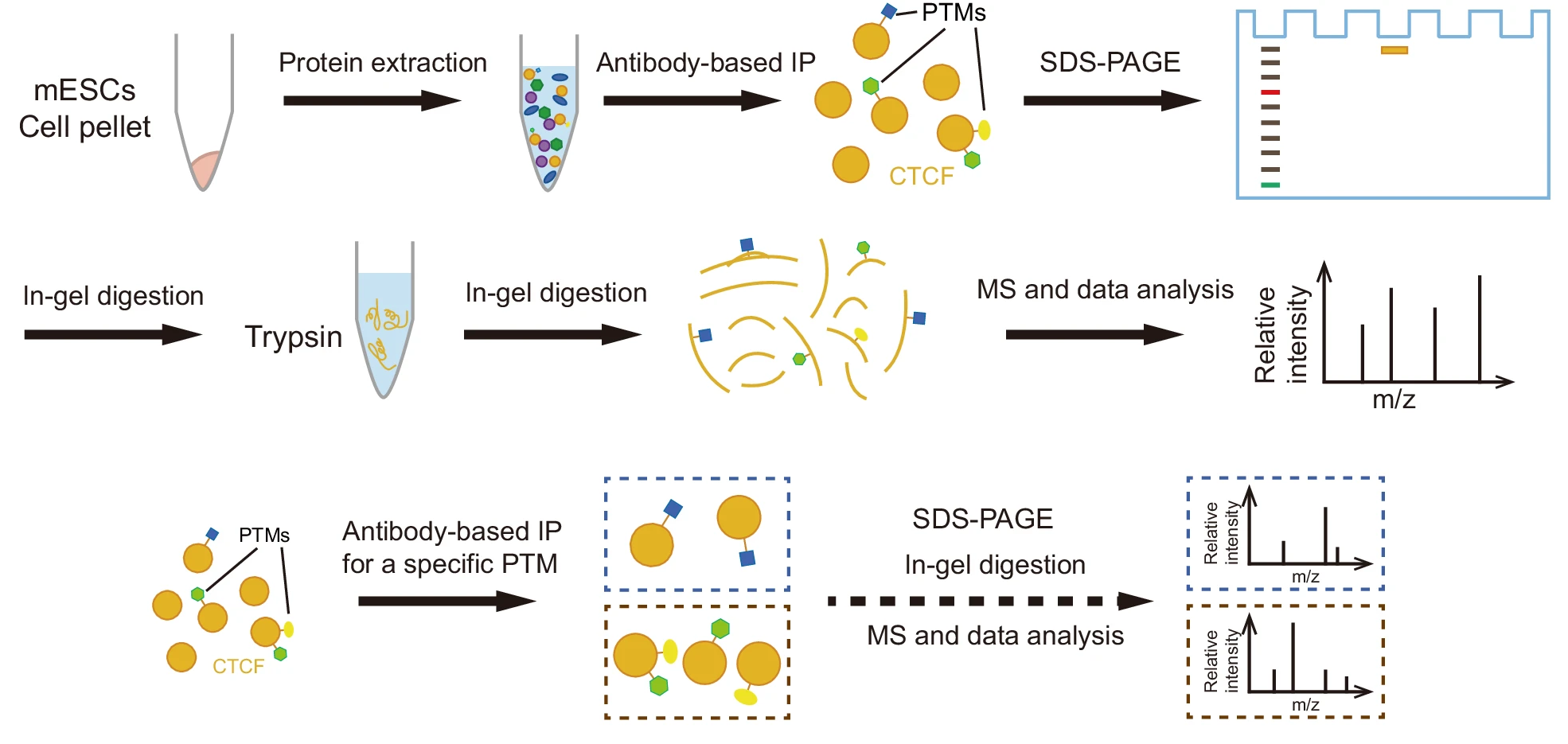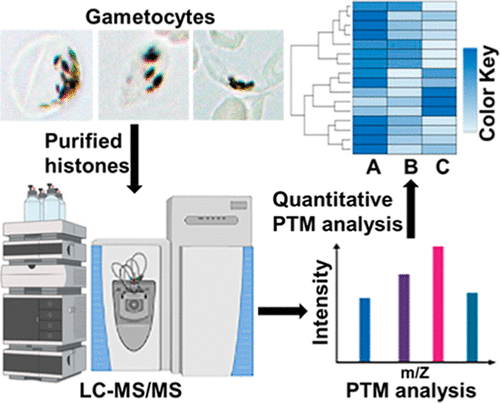PTM Profiling Analysis Service
Post-Translational Modification (PTM) Profiling is a technology designed for the comprehensive analysis of protein PTM, aiming to investigate the dynamic modification patterns of proteins under different physiological and pathological conditions. PTM plays a crucial role in regulating protein function, stability, interactions, and cellular signaling pathways. Common types of modifications include phosphorylation, acetylation, ubiquitination, methylation, and glycosylation. By systematically analyzing PTM, researchers can gain deeper insights into how proteins contribute to cellular regulation, disease progression, and drug responses.
The PTM profiling analysis service primarily utilizes high-resolution mass spectrometry combined with specific modification enrichment strategies (e.g., TiO₂ column enrichment for phosphorylated peptides) for high-throughput analysis. The core workflow includes sample preparation, PTM enrichment, LC-MS/MS mass spectrometry detection, and bioinformatics analysis to identify modification sites, quantify modification levels, and analyze associated signaling pathways. This technology is widely applied in cancer research, neurodegenerative diseases, cardiovascular diseases, biomarker discovery, drug development, immunology, and metabolic regulation, providing a powerful tool for precision medicine and fundamental biological research.

Tang, X X. et al. Nature Communications, 2024.
Figure 1. Schematic Overview of the Identification of PTM Profiling.
Services at MtoZ Biolabs
Based on Thermo Fisher’s Q Exactive HF, Orbitrap Fusion, and Orbitrap Fusion Lumos mass spectrometry platforms combined with Nano-LC, MtoZ Biolabs offers a PTM profiling analysis service that ensures high-sensitivity and high-resolution data acquisition. Our service covers comprehensive sample preparation, specific PTM enrichment (such as phosphorylation, acetylation, ubiquitination, etc.), high-throughput LC-MS/MS detection, and bioinformatics analysis, ensuring precise identification and quantification of target modified proteins.
Service Advantages
1. Advanced Analysis Platform
MtoZ Biolabs established an advanced PTM profiling analysis service platform, guaranteeing reliable, fast, and highly accurate analysis service.
2. One-Time-Charge
Our pricing is transparent, no hidden fees or additional costs.
3. High-Data-Quality
Deep data coverage with strict data quality control. AI-powered bioinformatics platform integrates all proteomics analysis data, providing clients with a comprehensive data report.
4. Comprehensive Detection of Multiple PTM Types
We offer enrichment and detection services for various post-translational modifications, including phosphorylation, acetylation, methylation, ubiquitination, glycosylation, and nitration, facilitating the analysis of complex biological regulatory mechanisms.
5. Customized Services
MtoZ Biolabs provides personalized experimental design and data analysis tailored to diverse research needs, covering disease studies, target screening, biomarker discovery, and immune regulation, thereby advancing precision medicine research.
Applications
1. Disease Mechanism Research
By analyzing PTM patterns, this approach reveals key regulatory mechanisms underlying cancer, neurodegenerative diseases, cardiovascular diseases, and autoimmune disorders, aiding in early disease diagnosis and targeted therapy.
2. Biomarker Discovery
PTM profiling analysis service enables comparative analysis of modified proteins in healthy and diseased samples, identifying PTM biomarkers associated with diseases and providing potential biomarkers for precision medicine.
3. Drug Target Screening and Mechanism of Action Studies
PTM analysis helps decipher how drugs influence protein modification states, facilitating the identification of potential drug targets, evaluating drug mechanisms and efficacy, and optimizing novel drug development strategies.
4. Cell Signaling Pathway Research
By quantitatively analyzing phosphorylation, acetylation, ubiquitination, and other modifications, this approach reveals the role of proteins in signal transduction, metabolic regulation, and cell cycle control, contributing to fundamental life sciences research.
5. Immunology Research
Analyzing PTMs of immune-related proteins helps explore their functions in immune responses, inflammatory reactions, and the tumor immune microenvironment, providing valuable data for immunotherapy development.
6. Biopharmaceutical Development and Quality Control
PTM profiling analysis service can be used to monitor PTM patterns in antibody drugs, vaccines, and protein-based therapeutics, ensuring the stability and consistency of biopharmaceutical products while improving their quality and safety.
Case Study
1. Distinct Histone Post-translational Modifications during Plasmodium falciparum Gametocyte Development
This study aims to investigate the changes in histone PTMs during the gametocyte development of Plasmodium falciparum to elucidate their role in regulating the parasite’s life cycle. The study focuses on gametocytes at different developmental stages (I-V) and employs mass spectrometry (MS) in combination with chromatin immunoprecipitation (ChIP) and RNA sequencing (RNA-seq) to systematically analyze histone PTMs. The results reveal dynamic changes in multiple PTMs on histones H3 and H4 throughout gametocyte development, with H3K9me3 and H3K4me3 being highly enriched in early-stage gametocytes, while H4K8ac and H4K16ac significantly increase in late-stage gametocytes. Additionally, certain PTMs were found to be positively or negatively correlated with the expression levels of specific genes, suggesting that these modifications may regulate gene expression and influence gametocyte differentiation. The study also identified several potential epigenetic regulators, such as SET family methyltransferases and HAT acetyltransferases, that may mediate these modifications. Overall, this study reveals stage-specific histone PTM patterns during P. falciparum gametocyte development and identifies potential epigenetic targets, providing key insights into the regulation of the parasite's life cycle and offering new directions for developing novel antimalarial strategies.

Shrestha, S. et al. Journal of Proteome Research, 2022.
Figure 2. Workflow of Histone PTM Analysis During Plasmodium falciparum Gametocyte Development.
Deliverables
1. Comprehensive Experimental Details
2. Materials, Instruments, and Methods
3. Data Analysis, Preprocessing, and Estimation
4. Bioinformatics Analysis
5. Raw Data Files
MtoZ Biolabs, an integrated Chromatography and Mass Spectrometry (MS) Services Provider, provides advanced proteomics, metabolomics, and biopharmaceutical analysis services to researchers in biochemistry, biotechnology, and biopharmaceutical fields. Our ultimate aim is to provide more rapid, high-throughput, and cost-effective analysis, with exceptional data quality and minimal sample consumption. Free project evaluation, welcome to learn more details!
How to order?







